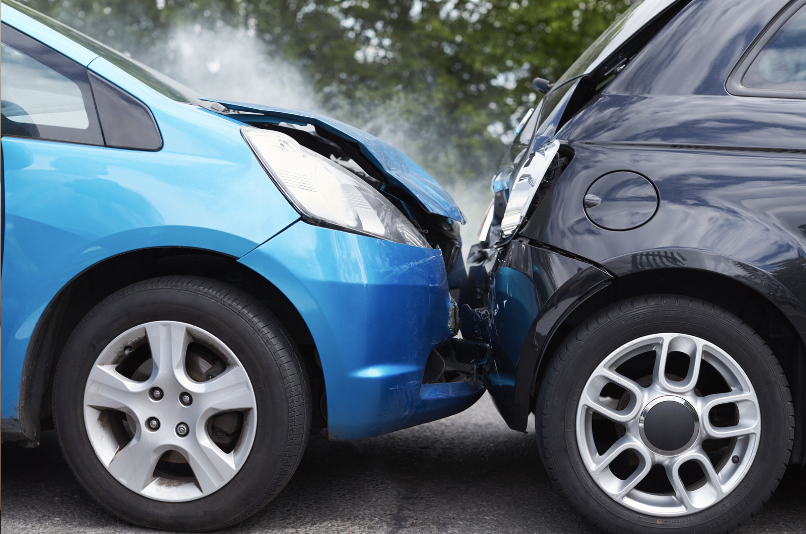
Motor Vehicle Accidents
Automobile, Truck, Bicycle, Motorcycle Accidents & More
Being involved in a motor vehicle accident can be extremely traumatizing for all parties involved. Many personal injury claims arise from car accidents, where through the negligence of another, a person is injured. Recovery from these accidents can be very strenuous on the injured party, requiring months and sometimes years of rehabilitation. The financial hardship that often results from these injuries can have lingering effects for years, which is why it is extremely important to have attorneys on your side who will protect your best interests and fight for the compensation you deserve.
-
Car Accidents
Truck Accidents
Motorcycle Accidents
Bicycle Accidents
Boating Accidents
Pedestrian Accidents
-
In the State of Indiana, the statute of limitations for personal injury cases is two (2) years. Therefore, a party wishing to sue a defendant for injuries resulting from a personal injury matter must do so within two (2) years from the date of the accident.
-
It is not uncommon for insurance companies to reach out to injured parties directly after an accident. Often these insurance companies will try and make settlement offers directly to the injured parties. However, these offers are often very low and do not compensate the injured parties for all expenses related to the injury. These injuries sometimes include, but are not limited to medical bills, rehabilitation costs, lost wages, loss or consortium, pain and suffering, emotional distress, and loss of enjoyment of life. Let us help you get the compensation you deserve.
As attorneys we are well versed in:
Negotiating with insurance companies to get the compensation you deserve
Investigating claims
Pushing back against an insurance company’s attempt to deemphasize the severity of injuries and fault.
Interviewing witnesses that strengthen your case
Consulting with experts
Appearing in court if necessary to obtain fair compensation
-
Until all details of your injury have been discussed and investigated, it is difficult to put a value on your case. However, the value of a personal injury claim is determined by a number of factors, including but not limited to the severity of the injuries, medical costs, rehabilitation costs, emotional distress, pain and suffering, any permanent injuries or future medical procedures/costs, lost wages, loss of consortium, and loss of enjoyment of life.
After a thorough investigation into your claim, a qualified personal injury attorney will be able to guide you through the complexities and value of your claim.
-
Loss of consortium simply means the loss of benefits of a family relationship. This claim is often brought as a stand-alone claim by the injured party’s spouse seeking damages against the tortfeasor for the loss of companionship they have suffered due to the injuries sustained by their injured spouse. As a result of the injury, one spouse can no longer give the other spouse the love, comfort, companionship, support, or intimate relations that they provided before the accident.
-
The typical personal injury case will involve a cause of action alleging negligence on behalf of the defendant. In order to prove negligence, the plaintiff must show:
That a duty of care existed. This is an obligation that one party has to another to exercise a reasonable amount of care given the circumstances. This duty can arise from operation or ownership or the relationship between the parties.
That the duty of care was breached. Once a duty of care is established, it can be breached by inaction or by acting outside of the parameters of a reasonable prudent person given the circumstances.
That the breach of the duty of care caused the injuries to the plaintiff. The injuries sustained must have been “reasonably foreseeable” given the circumstances.
That the plaintiff suffered actual damages due to the actual and proximate cause of the defendant’s negligence.
-
Call the police
Seek medical attention
Notify your insurance company
Talk to a personal injury attorney
-
After an accident, even if you believe your injuries are minor, it is beneficial to seek medical treatment. Until you are evaluated by a medical professional, it is difficult to determine the severity of your injuries and therefore makes it difficult to put a monetary value on those injuries.
-
Police reports are usually very helpful during the investigation stage of a personal injury claim. They offer an unbiased third-party account of what happened. Police reports can show that the severity of the accident was enough to warrant a call to the police. This can be vital information when negotiating with insurance companies.
-
Every personal injury case is different. Some cases are resolved quicker than others, however, we do our best to resolve matters in a timely manner without jeopardizing the settlement amount. Factors that may prolong a personal injury case include, but are not limited to bad faith offers by an insurance company, continuing rehabilitation or hospitalization, an investigation into a claim, prolonged discovery process, and interviewing witnesses.
